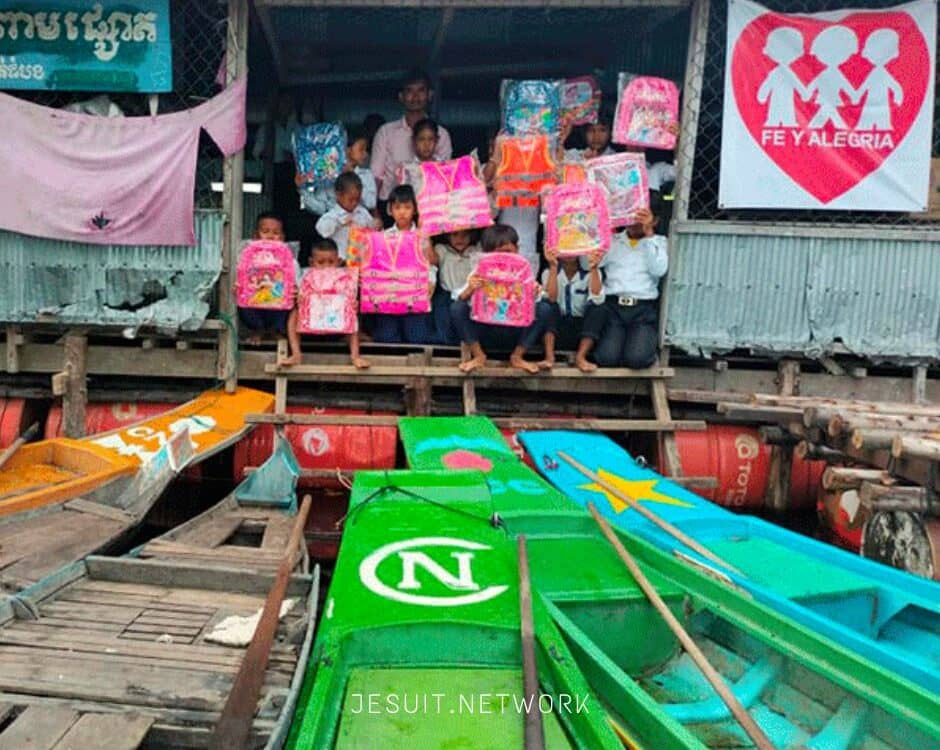This website uses cookies so that we can provide you with the best user experience possible. Cookie information is stored in your browser and performs functions such as recognising you when you return to our website and helping our team to understand which sections of the website you find most interesting and useful.
Migrant support Network in USA
In September of 2022, Jesuit Refugee Service in USA announced the launch of the Migrant Accompaniment Network, a nationwide group of volunteers who will engage those who have recently arrived in the U.S. with their integration into welcoming communities. The network was formed in collaboration with the Kino Border Initiative (KBI) and the Ignatian Solidarity Network (ISN) and with the aim of ongoing collaboration with partners in Mexico border cities, as well as throughout Mexico and Central America.
he Migrant Accompaniment Network evolved through the work of the Jesuit Migration Network(JMN) of the U.S. and Canada. KBI is a JMN member and a Jesuit-sponsored bi-national organization providing direct assistance and accompaniment, education, research, and advocacy to migrants on the U.S.-Mexico border in Nogales, Arizona and Nogales, Sonora, Mexico. The organization would frequently receive referrals from both the border and from partners in Central America seeking support and accompaniment for people who had migrated to the U.S.—for example, a family with a son in a migration detention center in Youngstown, OH.
KBI and other JMN partners would create informal connections for support in these situations, but the work was happening piecemeal and KBI, as a humanitarian organization, didn’t feel they were adequately meeting people’s needs. As a JMN partner, ISN was also informally involved in this work, but, as ISN’s executive director Christopher Kerr shared, the organization “wasn’t being a good conduit for the Jesuit, Ignatian network to offer the kind of coordinated, ongoing one-to-one support that is very much needed—no one had ownership to steer the work.”
After three years of a variety of attempts to create well-running project, Kerr and Joanna Williams, KBI’s executive director, created a summary of the need for a cohesive program to accompany those migrating to the U.S. and the roadblocks the Jesuit network had experienced to that point—creating a formal proposal for possible funders.
Around the same time, Jesuit Refugee Service in USA was expanding its work on the U.S.-Mexico border, focusing on psychosocial service and humanitarian work in Ciudad Juarez and El Paso. In 2020, Kerr and Williams approached Joan Rosenhauer with a proposal to take on the work of what would become the Migrant Accompaniment Network, and Rosenhauer jumped at the opportunity. The project fit well with JRS in USA’s growth—and JRS’s global work, creating national networks of individuals trained to serve migrants and refugees.
Within six months, JRS in USA had developed the infrastructure to create a full time position that would support this work, including vetting and training members of the Jesuit network to be available for referrals to support migrants in specific metro areas.
“This project illustrates the power of a strong network,” shared Kerr last month, “creating a space to identify common challenges, trends, areas of collective struggle, then as a network of organizations with a common mission and values, work to come up with solutions”—in this case bringing the solution to an organization in the network that had the capacity to solve the problem—JRS in USA.
The JRS Migrant Accompaniment Network will invite Jesuit affiliated organizations and individuals, as well as those in other religious congregations, churches, or migrant serving organizations, to participate in welcoming and accompanying recently arrived individuals during their transition to living in a new environment.
“Integrating into a new community, especially in a new country, is an extremely difficult part of someone’s life,” said Maria Torres, JRS in USA’s senior manager of border programs. “Through the dedicated volunteers that are part of our network, those who have already experienced hardship will have an easier time as they settle into their new communities.”
Kerr also spoke recently about how the work of the Migrant Accompaniment Network aligns with Catholic teaching. “Pope Francis consistently reminds us that our call as Christians is to welcome the migrant,” he said. “Hospitality in our communities, in our churches, and in other Catholic works is critical to responding to this call…The realities of violence, insecurity, government repression, economic poverty, and climate change are all causing people to seek refuge and opportunities to lead fully flourishing lives in the United States.”
“The Catholic Church is already responding in a myriad of ways to the needs of people facing these situations, but with strategic connecting and networking, even more can be done,” he went on to say. “The Migrant Accompaniment Network hopes to be the conduit that unites Catholic communities, including Jesuit colleges, universities, secondary schools, other ministries, and individual Catholics, with the critical needs of migrants throughout the country.”
Source: Ignatian Solidarity Network





